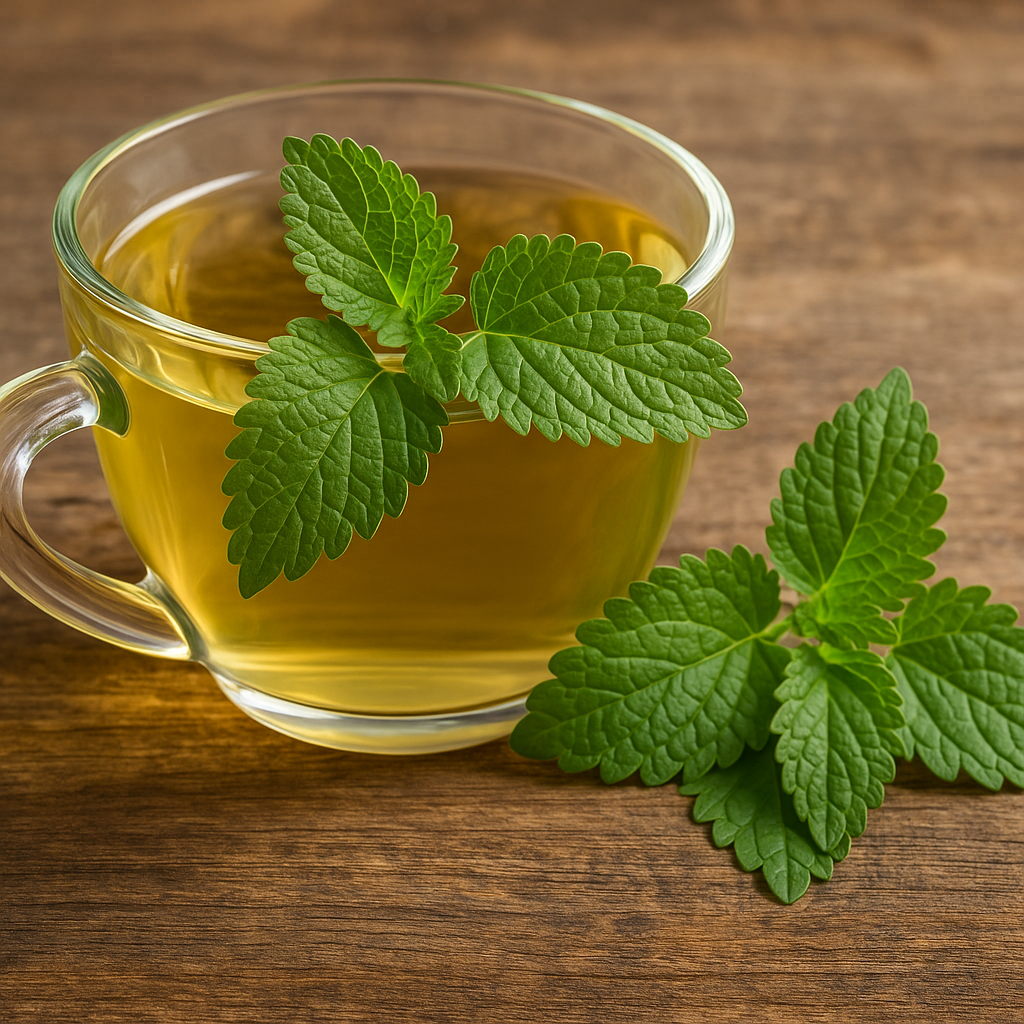Lemon balm (Melissa officinalis) is a widely known medicinal plant, appreciated for its pleasant lemony aroma and calming properties. Native to Europe and a member of the mint family (Lamiaceae), it has been used for centuries in natural medicine, especially as a tea.
In this article, you’ll learn about the main health benefits of lemon balm, how to prepare it, and the precautions to keep in mind.
What is Lemon Balm?
Lemon balm is a perennial herb that thrives in temperate and tropical climates. Its soft green leaves release a refreshing citrus scent, which often causes confusion with lemongrass (Cymbopogon citratus). Despite their similar smell, these are completely different plants.
You can easily grow lemon balm in your garden or find it in health food stores, herbal markets, and online retailers.
Health Benefits of Lemon Balm
1. Calming Effect and Anxiety Relief
One of the most well-known uses of lemon balm is its natural calming action. It contains compounds like citral, citronellal, and rosmarinic acid, which help reduce stress and anxiety. That’s why lemon balm tea is often recommended during moments of emotional tension or before bedtime.
2. Improves Sleep Quality
Lemon balm has mild sedative effects, making it useful for those who suffer from insomnia or irregular sleep. Drinking a warm cup of lemon balm tea before bed can help you fall asleep faster and improve the overall quality of your rest.
3. Aids Digestion
Lemon balm supports digestive health, reducing symptoms such as bloating, gas, and stomach discomfort. It works well as a natural post-meal digestive aid.
4. Antioxidant and Anti-inflammatory Properties
Thanks to its high content of flavonoids and polyphenols, lemon balm has antioxidant effects, protecting the body from oxidative stress and premature aging. It also has anti-inflammatory action, supporting immune health and the prevention of chronic diseases.
5. Relieves Headaches and Muscle Tension
Due to its relaxing effects, lemon balm can also help relieve tension headaches and mild muscle pain, especially when caused by stress.
How to Use Lemon Balm
The most popular way to consume lemon balm is in tea form, made from fresh or dried leaves. However, it is also available in capsules, essential oils, tinctures, and creams.
How to Make Lemon Balm Tea:
Ingredients:
- 1 tablespoon of fresh leaves or 1 teaspoon of dried leaves
- 1 cup of hot water
Instructions:
- Add the leaves to a cup.
- Pour hot water over the leaves.
- Cover and steep for 5–10 minutes.
- Strain and drink warm. You may add honey if desired.
You can safely drink up to 3 cups per day to enjoy its full calming benefits.
Precautions and Side Effects
While lemon balm is considered safe for most people, it should be used with care by:
- Pregnant or breastfeeding women, only under medical advice
- Those taking sedatives or medications for anxiety, due to interaction risks
- People with low blood pressure, as it may slightly reduce blood pressure further
Also, overuse or long-term consumption may lead to excessive drowsiness in sensitive individuals.
Don’t Confuse Lemon Balm with Lemongrass
Although both are aromatic and lemon-scented, lemon balm (Melissa officinalis) and lemongrass (Cymbopogon citratus) are different species with distinct chemical compositions. While both are calming, lemon balm is more effective in acting on the nervous system.
Conclusion
Lemon balm is a gentle yet powerful herb that can make a real difference in your mental well-being, sleep, and digestion. Easy to prepare and affordable, its tea is a great addition to any self-care routine, especially for those looking for natural ways to relax and improve their quality of life.


